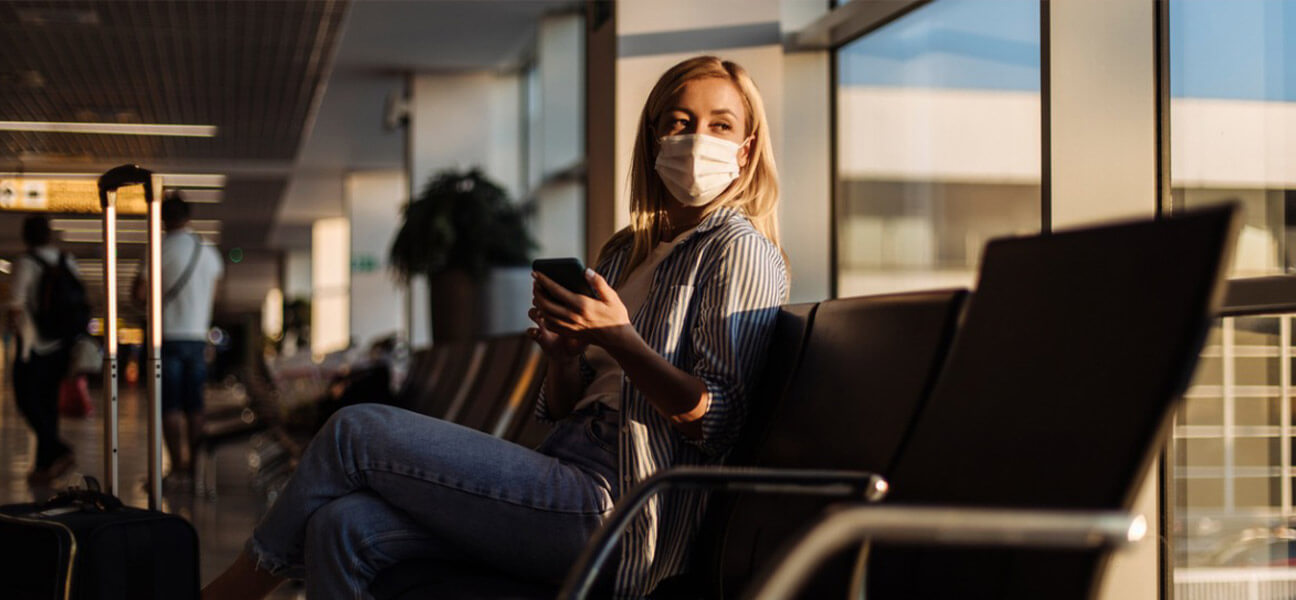More than half of U.S. finance managers say it’s very or extremely likely that their industry sees a boom in business travel by the end of the year—but only 16% say their organizations are completely prepared.
How has the pandemic, and the associated decrease in business travel, impacted businesses’ finances? Are organizations prepared for business travel’s impending return? New research commissioned by the SAP Concur organization and conducted by Wakefield Research in January suggests that while there is high demand—and likelihood—for a return to business travel this year, most organizations have yet to fully lay the groundwork.
Among the key findings from SAP Concur pulse surveys of 100 U.S. finance managers (VP and above) and 1,000 U.S. business travelers:
A reduction in business travel cost companies six figures and perfect scores from employees
- Most finance managers (88%) say that their company experienced a revenue loss over the past year as a direct result of employees’ inability to travel at pre-pandemic levels.
- 44% of business travelers say that their company needs an increase in business travel to remain viable beyond 2022; 35% say the same for their career, and 30% say the same for their entire industry.
- Nearly all finance managers (99%) and business travelers (99%) gave their company a passing grade on how it handled the reduction in business revenue due to decreased travel during the pandemic.
- Among finance managers whose companies lost revenue, 2% gave their company an A and 28% gave them a D.
- Business travelers were more generous: 27% gave their company an A and only 3% gave them a D.
Business is gradually trending toward business as we knew it
- Nearly all (98%) of surveyed finance managers report that their company has returned to the office in some capacity.
- More than half of finance managers (52%) say it’s very or extremely likely that their industry sees a boom in business travel by the end of 2022. And business travelers agree: 73% say that an increase is very or extremely likely this year, and 62% anticipate an increase in their own business travel compared to 2021.
Employees and companies continue to clash over travel, compliance and expenses
Travel
- Most finance managers (84%) say that their company is less than completely prepared to handle an increase in business travel in 2022. Also, 62% of finance managers agree that their company will fall behind competitors if their financial systems and staff aren’t prepared to immediately respond to these changes.
- 96% of business travelers acknowledge areas where their company leadership could have better prepared for an increase in business travel during the past year. These include increased flexibility and control for business travelers (52%), prioritization of in-person trips that drive business value (44%) and new or improved travel management technology (42%).
Compliance
- Nearly all (98%) of finance managers say they have seen an increase in non-compliant expenses during the past year.
- The vast majority of business travelers (89%) admit they’ve submitted at least one travel expense during the past year that may violate their company’s travel policies—on average, $3,397 of questionable expenses.
- And while the majority of finance managers (53%) believe those expenses stem from unclear policies, their employees admit to being a bit more mischievous: Nearly two-thirds of business travelers (65%) admit that questionable expenses come from employees intentionally trying to get reimbursed for personal expenses.
Expense
- 93% of business travelers say that their company leadership could have better prepared during the past year for new and different business expenses likely to be submitted in 2022.
- Suggested focus areas include investing in new or improved expense reporting technology (50%), increased training on expense policies (47%) and increased training on the company’s expense reporting systems (44%).
- During the past year, 86% of business travelers reported that their company has been delayed in reimbursing their business expenses at least once, and 89% say that a delay in receiving reimbursements impacts their personal finances.
Finance managers and business travelers don’t necessarily see eye to eye on everything
- Only 12% of finance managers think it’s extremely likely that their industry will see an increase in business travel before the end of 2022, compared to 36% of business travelers.
- Only 16% of finance managers feel their company is ready to handle an increase in business travel this year, compared to 39% of business travelers.
- While most business travelers (78%) gave their company an A or B grade for how it handled decreased revenue from business travel during the pandemic, only 38% of finance managers whose company lost revenue gave their company an A or B.
New and unique challenges for finance managers could explain the disparity
- All finance managers (100%) said that the Great Resignation was impacting their organization, and 51% expect continued impact through the end of 2022.
- All finance managers (100%) said that their role has changed—and become more challenging—since the start of the pandemic. Top reasons include taking on additional work caused by staffing shortages (59%), additional auditing and paperwork requirements (45%) and new or added involvement in internal communications (45%).
- On average, they are spending six hours each week on these tasks collectively.
Technology offers solutions for companies, finance managers and business travelers alike
- All finance managers (100%) expect their company to make financial technology investments in 2022, including 37% who expect their company to invest in new financial technology solutions. This is likely a welcome change, as the majority of finance managers (57%) use multiple applications to perform their role—and 17% use multiple applications with no integration between them.
- In 2022, business travelers would like to see their company invest in adding or updating apps with real-time travel updates and booking (46%), tools for quicker expense reimbursement (43%) and tools for navigating the latest travel safety requirements (41%). A travel management system (40%) and an integrated system for travel and expense reporting (39%) round out their top five.

